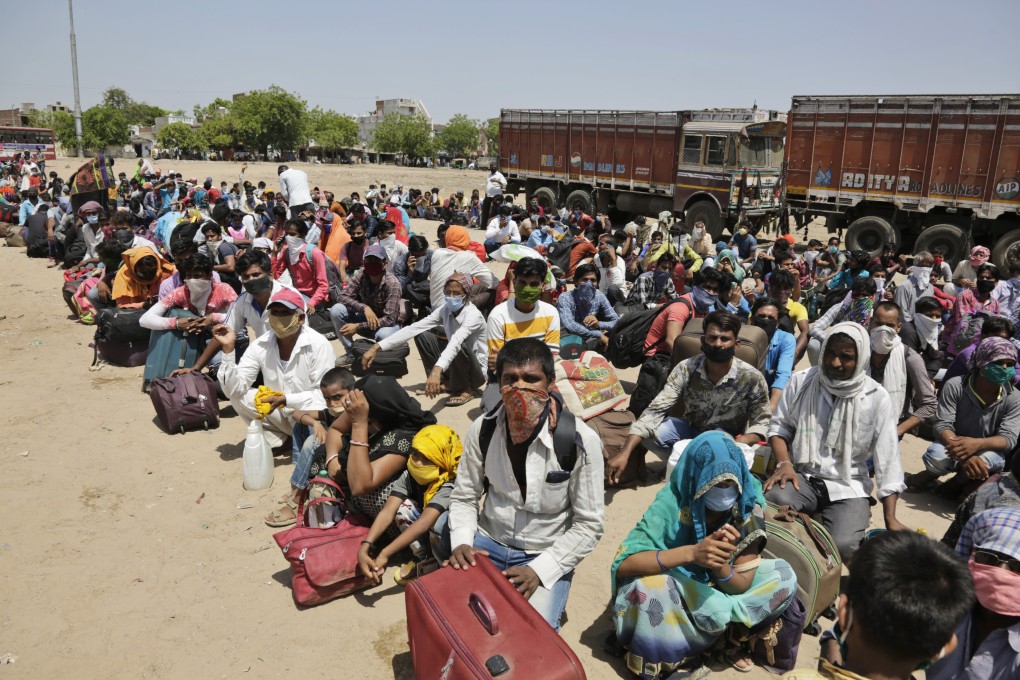Opinion | Modi’s coronavirus response leaves India’s poor migrant workers to suffer
- Precarious and crowded living conditions for those working in the informal economy make social distancing and handwashing unfeasible
- The government’s response has been inadequate and largely focused on long-term economic uplift, leaving the poor cast adrift with no access to social protections

Migrant labourers have fled India’s cities – the old and frail walking with sticks, couples struggling with infants and luggage, sobbing children trailing behind – trudging hundreds of kilometres back to their native villages.
More than 85 per cent of the country’s workforce toil in the informal economy, according to the International Labour Organisation. As many as a third of the population are internal migrants.
The move may have exacerbated Covid-19’s spread. Millions of poor migrants defied orders to stay indoors. With factories and businesses closed and no jobs, savings or social security to cushion them, this disempowered demographic left cities where they could not afford food.
Experts fear the humanitarian crisis will push this segment further into penury, the ILO noted in a report on Covid-19 and migration, warning of “catastrophic consequences” for about 400 million people in India’s informal economy.
